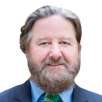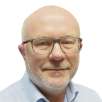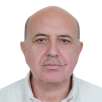Over the last five years, FDI has been developing resources to assist dental professionals in the planning and delivery of care for partially dentate patients. At the 2023 FDI World Dental Congress, Dr Shiamaa Shihab Ahmed al-Mashhadani, who has been closely involved in the development and implementation of several projects related to improving the oral health of partially dentate patients, will hold a session on the topic. During the session, she will present a valuable assessment tool developed by FDI that will help patients understand their treatment options and will assist dentists in better understanding their patients’ health status and needs.
Dr al-Mashhadani, the number of partially dentate patients is on the rise. How does this trend affect dentistry?
The increase in partially dentate patients is having a significant impact on dental care, and different facets of oral healthcare, treatment options and dental practice are being affected. Dental practitioners must offer a variety of treatment choices for replacing missing teeth. These choices include implant-supported dentures, fixed bridges and removable dentures. To propose the best option for treatment, dentists must evaluate each patient’s unique needs, preferences and oral health status.
Dental practitioners also need to educate partially dentate patients on proper oral hygiene practices, focusing on preventing further tooth loss, maintaining the remaining teeth and addressing the risk factors that may contribute to their dental problems. There will also be a demand for specialised training for prosthodontic and restorative treatment options. This will trigger interest in research and innovation in dental materials, implant technologies and treatment modalities.
There will be a long-term relationship between dentists and patients for follow-up care and maintenance, and there could be a rise in public health dentistry concerned with the care and health of partially dentate patients.
In your upcoming session at the FDI congress, you will present some resources to assist dental professionals in the planning and delivery of care for partially dentate patients. Could you elaborate on that and explain how important it is that dentists use the right resources?
Dentists need to use the best resources available to them when treating partially dentate patients. Proper resources and evidence-based practices are crucial for providing high-quality dental care and achieving optimal outcomes for these patients. The main goals for the planning and delivery of care for partially dentate patients are to empower dental practitioners to comprehend and support the unique needs of these patients.
“Dentists must evaluate each patient’s unique needs, preferences and oral health status”
To this end, our team of experts collaborated to shift the paradigm from a biomedical to a patient-centred care model. To deliver quality dental care, we have developed a toolkit that has chairside guidelines and offers detailed instructions on all treatment options as well as a three-phase treatment planning approach that covers all aspects of the patient’s journey. The resource also aims to increase global awareness about the specific needs of partially dentate patients and the treatment options available for them. Those interested can find it freely available on the FDI website.
How exactly will FDI’s assessment tool benefit partially dentate patients and dental professionals?
Both patients and the dental professionals involved in their treatment will greatly benefit from this assessment tool. It was developed to aid with the evaluation and treatment of people with partial dentition, ensuring comprehensive and patient-centred care. Specifically, patients will benefit from a comprehensive evaluation, an individualised treatment plan, informed decision-making and improved communication with their dental health provider. Dentists will have in hand a standardised evaluation tool that is evidence-based and increases efficiency and accuracy in decision-making. The tool will also help to facilitate interdisciplinary collaboration and will keep dental professionals updated on the latest developments in treating partially dentate patients.
Editorial note:
The 2023 FDI World Dental Congress will take place from 24 to 27 September in Sydney in Australia. Dr Shiamaa Shihab Ahmed al-Mashhadani is one of the speakers at the symposium, titled “Partially dentate patients: Empowering patients to make informed treatment choices”, which takes place on 25 September from 14:30 to 15:15. She is also a speaker at the symposium, titled “Life is much sweeter, without the sugar”, which will be held on 25 September from 15:30 to 16:15. More information about the event can be found here.
Tags:
The countdown is finally over. Four years after its last in-person event, the FDI World Dental Congress is making a return. Dental Tribune International ...
SYDNEY, Australia: Organised annually by FDI World Dental Federation, the World Dental Congress is one of the most prestigious continuing education events ...
SYDNEY, Australia: This year’s FDI World Dental Congress is going to be one of the premier global dental events of the year, not only bringing the dental ...
Celebrated every year on 20 March, World Oral Health Day (WOHD) is the largest global awareness campaign on oral health. The WOHD task team oversees the ...
SYDNEY, Australia: To engage with aspiring dental professionals and students, FDI has launched the Young Dentists Forum, and the inaugural session will be ...
GENEVA, Switzerland: Every year on 20 March, people around the globe unite to celebrate World Oral Health Day (WOHD) and put the spotlight on the immense ...
CHICAGO, US: The American Dental Association (ADA) Science and Research Institute and the University of Pittsburgh School of Dental Medicine in the US have ...
Live webinar
Wed. 21 August 2024
9:00 am EST (New York)
Dr. Jim Lai DMD, MSc(Perio), EdD, FRCD(C)
Dr. Lars Rosén Christensen
Dr. Zoe Brookes, Prof. Colman McGrath, Prof. Michael McCullough



 Austria / Österreich
Austria / Österreich
 Bosnia and Herzegovina / Босна и Херцеговина
Bosnia and Herzegovina / Босна и Херцеговина
 Bulgaria / България
Bulgaria / България
 Croatia / Hrvatska
Croatia / Hrvatska
 Czech Republic & Slovakia / Česká republika & Slovensko
Czech Republic & Slovakia / Česká republika & Slovensko
 France / France
France / France
 Germany / Deutschland
Germany / Deutschland
 Greece / ΕΛΛΑΔΑ
Greece / ΕΛΛΑΔΑ
 Italy / Italia
Italy / Italia
 Netherlands / Nederland
Netherlands / Nederland
 Nordic / Nordic
Nordic / Nordic
 Poland / Polska
Poland / Polska
 Portugal / Portugal
Portugal / Portugal
 Romania & Moldova / România & Moldova
Romania & Moldova / România & Moldova
 Slovenia / Slovenija
Slovenia / Slovenija
 Serbia & Montenegro / Србија и Црна Гора
Serbia & Montenegro / Србија и Црна Гора
 Spain / España
Spain / España
 Switzerland / Schweiz
Switzerland / Schweiz
 Turkey / Türkiye
Turkey / Türkiye
 UK & Ireland / UK & Ireland
UK & Ireland / UK & Ireland
 Brazil / Brasil
Brazil / Brasil
 Canada / Canada
Canada / Canada
 Latin America / Latinoamérica
Latin America / Latinoamérica
 USA / USA
USA / USA
 China / 中国
China / 中国
 India / भारत गणराज्य
India / भारत गणराज्य
 Japan / 日本
Japan / 日本
 Pakistan / Pākistān
Pakistan / Pākistān
 Vietnam / Việt Nam
Vietnam / Việt Nam
 ASEAN / ASEAN
ASEAN / ASEAN
 Israel / מְדִינַת יִשְׂרָאֵל
Israel / מְדִינַת יִשְׂרָאֵל
 Algeria, Morocco & Tunisia / الجزائر والمغرب وتونس
Algeria, Morocco & Tunisia / الجزائر والمغرب وتونس
 Middle East / Middle East
Middle East / Middle East
:sharpen(level=0):output(format=jpeg)/up/dt/2024/07/Study-evaluates-primary-personality-types-among-dental-students.jpg)
:sharpen(level=0):output(format=jpeg)/up/dt/2024/07/Shutterstock_2330040761.jpg)
:sharpen(level=0):output(format=jpeg)/up/dt/2024/07/file-7.jpg)
:sharpen(level=0):output(format=jpeg)/up/dt/2024/07/Our-commitment-to-digital-dentistry-is-a-cornerstone-of-our-strategy.jpg)
:sharpen(level=0):output(format=jpeg)/up/dt/2024/07/Shutterstock_1051488260.jpg)








:sharpen(level=0):output(format=png)/up/dt/2014/02/Du%CC%88rr_Dental.png)
:sharpen(level=0):output(format=png)/up/dt/2010/11/Nobel-Biocare-Logo-2019.png)
:sharpen(level=0):output(format=png)/up/dt/2023/08/Neoss_Logo_new.png)
:sharpen(level=0):output(format=png)/up/dt/2023/11/Patent%E2%84%A2-Implants-_-Zircon-Medical.png)
:sharpen(level=0):output(format=png)/up/dt/2024/06/VOCO_logo_freigestellt-schmal-1.png)
:sharpen(level=0):output(format=png)/up/dt/2022/05/osstem_logo.png)
:sharpen(level=0):output(format=png)/up/dt/2011/07/fdi.png)
:sharpen(level=0):output(format=jpeg)/up/dt/2023/09/Proper-resources-and-evidence-based-practices-are-crucial-for-providing-high-quality-dental-care-.jpg)
:sharpen(level=0):output(format=jpeg)/up/dt/2024/03/profile-image-300x300.jpg)
:sharpen(level=0):output(format=jpeg)/up/dt/2023/09/FDI-Sydney-2023_11.jpg)
:sharpen(level=0):output(format=jpeg)/up/dt/2023/09/FDI-to-welcome-the-world-of-dentistry-to-Australia_1-1.jpg)
:sharpen(level=0):output(format=jpeg)/up/dt/2023/09/FDI-2023-Latest-industry-trends-and-expansive-networking-opportunities.jpg)
:sharpen(level=0):output(format=jpeg)/up/dt/2023/09/New-strategy-for-WOHD-to-be-revealed-at-World-Dental-Congress-.jpg)
:sharpen(level=0):output(format=jpeg)/up/dt/2023/09/FDIs-Young-Dentists-Forum-empowers-future-leaders-in-dentistry.jpg)
:sharpen(level=0):output(format=jpeg)/up/dt/2023/02/FDI-celebrates-World-Oral-Health-Day.jpg)
:sharpen(level=0):output(format=jpeg)/up/dt/2023/08/New-ADA-clinical-practice-guideline-recommends-acetaminophen-and-NSAIDs-as-first-line-treatment-for-paediatric-dental-pain.jpg)








:sharpen(level=0):output(format=jpeg)/up/dt/2024/05/FDI-World-Dental-Congress-2024-promises-great-continuing-education-and-networking-experience.jpg)
:sharpen(level=0):output(format=jpeg)/up/dt/2024/03/Shutterstock_1940444479.jpg)
:sharpen(level=0):output(format=jpeg)/up/dt/2024/01/New-journal-supplement-explores-the-role-of-mouthwash-in-oral-care.jpg)
:sharpen(level=0):output(format=jpeg)/wp-content/themes/dt/images/3dprinting-banner.jpg)
:sharpen(level=0):output(format=jpeg)/wp-content/themes/dt/images/aligners-banner.jpg)
:sharpen(level=0):output(format=jpeg)/wp-content/themes/dt/images/covid-banner.jpg)
:sharpen(level=0):output(format=jpeg)/wp-content/themes/dt/images/roots-banner-2024.jpg)
To post a reply please login or register